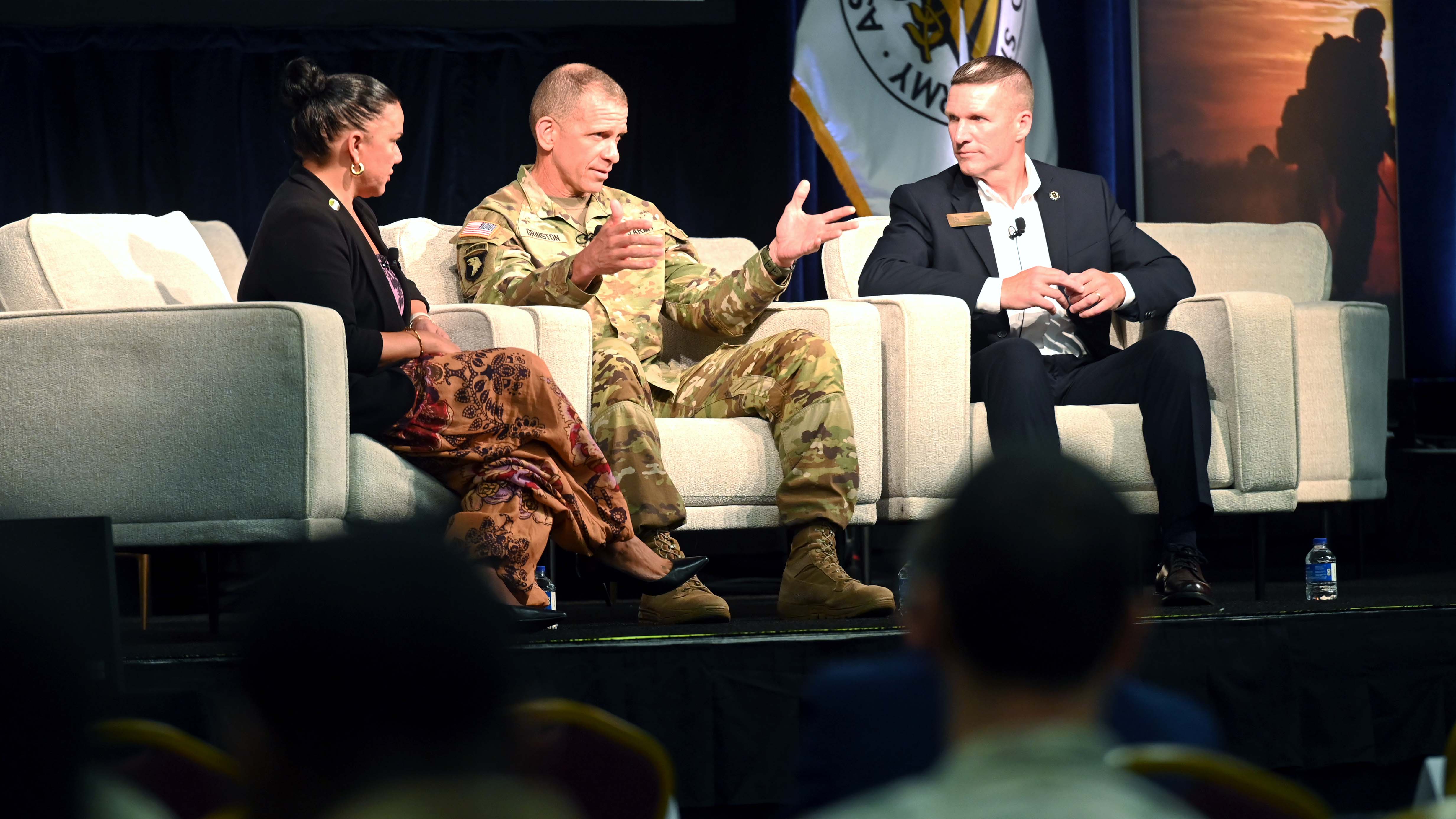Current, Former SMAs Discuss Challenges
Current, Former SMAs Discuss Challenges

From responding to the COVID-19 pandemic to pushing for changes to the Army’s policies on tattoos and socks, the sergeant major of the Army plays an important role in taking care of soldiers, tending to morale and making sure the service’s top leaders have a good feel for the state of the force.
During a fireside chat July 27 at the Association of the U.S. Army’s 2023 Warfighter Summit and Exposition, Sgt. Maj. of the Army Michael Grinston and his predecessor, retired Sgt. Maj. of the Army Daniel Dailey, who is now vice president of NCO and Soldier Programs for AUSA, talked about their experiences as the Army’s senior enlisted leader.
For Grinston, who is scheduled to retire Aug. 4, the COVID-19 pandemic was one of the most impactful events of his four-year tenure. “What your Army did was unbelievable,” Grinston said. “I don’t think the average American will know or remember everything the Army did to save the country at that time.”
Soldiers and the Army were at the forefront of almost every pandemic response effort, Grinston said. This includes building medical facilities, bolstering civilian hospitals, providing testing and vaccines, and more. At the same time, soldiers continued to train.
“We wouldn’t telework to combat, and if the country needed to call us to combat, we had to be ready,” Grinston said. Army actions during the pandemic were “probably the most impactful thing not just in the Army, but the country and the world,” he said.
Asked about an impactful decision made during his tenure, Dailey, who retired in August 2019, cited as an example the decision by senior Army leaders to ease the service’s policy on tattoos.
The change came early in his tenure, after then-Army Chief of Staff Gen. Raymond Odierno asked Dailey to visit soldiers across the country and find out how they were doing. Feedback he received on the Army’s more restrictive tattoo policy was received loud and clear, Dailey said.
“Things like that matter,” Dailey said. “It’s amazing what affects the morale of our soldiers, and the impact senior leaders can have just from taking the time to listen to them … and relaying that to your leaders.”
Other key accomplishments include changing the NCO education and promotion systems and implementing the Army Combat Fitness Test, Grinston and Dailey said.
Looking to the future, Grinston and Dailey said today’s NCOs must work hard every day to maintain the best NCO corps in the world. “You have to work really hard every day so you can remain relevant, tactically proficient and capable, and outpace our adversaries around the world,” Dailey said.
Armies around the world envy the U.S. Army’s NCO corps, Dailey said. “There’s no secret sauce other than we empower, we educate, we train, and we invest into a system that works, it’s proven itself on the battlefield,” he said.
NCOs in the U.S. Army also enjoy the trust of their leaders, Grinston said. “Officers around the world don’t trust their NCOs like our officers do,” he said. “Don’t lose that trust as an NCO. You’ve got to earn that every day.”

